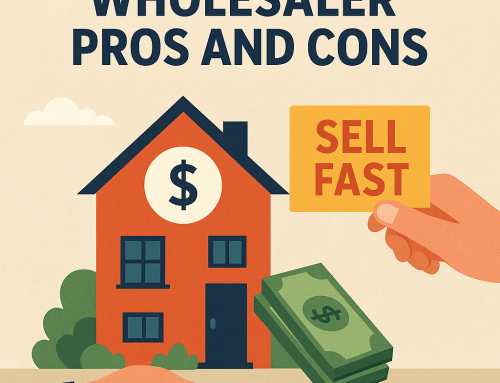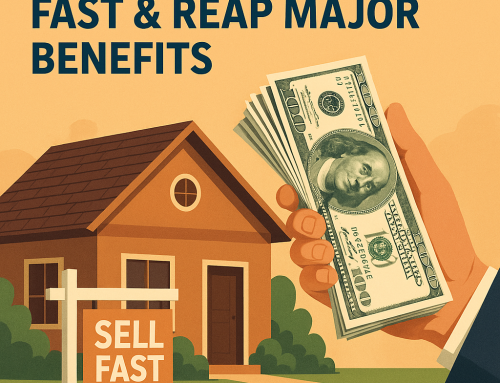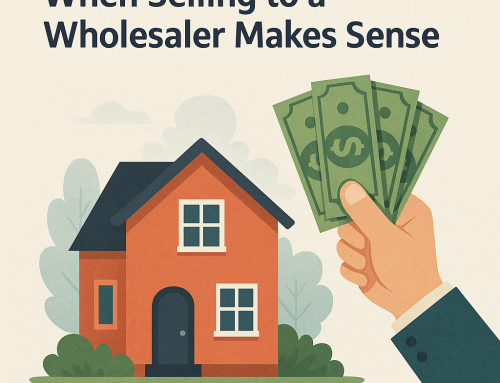- Understanding Wholesalers in Real Estate
- Advantages of Using a Wholesaler
- Disadvantages of Using a Wholesaler
- The Role of Real Estate Agents
- Advantages of Using a Real Estate Agent
- Disadvantages of Using a Real Estate Agent
- Making the Right Choice
Selling your home can often be a stressful experience filled with numerous decisions. When considering the best route to go, many homeowners begin to weigh their options: working with a real estate agent or engaging a wholesaler. Both avenues provide distinct advantages and disadvantages, especially when you’re looking for a quick sale or want to get cash for your home.
Understanding Wholesalers in Real Estate
Wholesalers act as intermediaries in the real estate market. Their primary goal is to connect sellers with qualified buyers, often investors looking for properties to flip or rent. The wholesaler typically enters a contract with the seller, securing the property under a certain price, and then sells that contract to an investor at a higher price.
Advantages of Using a Wholesaler
1. Speedy Transactions: Wholesalers often cater to sellers eager to sell their homes fast. Because they deal primarily in cash offers from investors, the sale process is expedited. This means no prolonged waiting for mortgage approvals.
2. No Repairs Necessary: Many wholesalers buy homes “as-is.” If your property has significant repairs or issues, you can sidestep costly renovations that real estate agents usually recommend to attract traditional buyers.
3. Simplified Process: Wholesalers streamline the selling process, handling paperwork and negotiations on your behalf, which can alleviate stress if you’re keen on a quick cash deal.
Disadvantages of Using a Wholesaler
1. Lower Sale Price: Wholesalers often aim for lower purchase prices, meaning you might sell your home for less than its market value. This can be a significant downside if you’re looking to maximize your profit.
2. Less Control: Once you agree to a sale with a wholesaler, you have limited control over the process. They won’t always provide transparency, which can lead to confusion or frustration.
3. Variable Legitimacy: Not all wholesalers operate with integrity. It’s essential to vet wholesalers carefully to ensure a trustworthy transaction.
The Role of Real Estate Agents
Real estate agents have long been the traditional go-to for homeowners looking to sell. These licensed professionals guide sellers through the entire process, from pricing and marketing the property to closing the deal.
Advantages of Using a Real Estate Agent
1. Higher Sale Prices: Agents typically list homes at market value and often negotiate better sale prices. Their expertise in the local market can lead to higher offers.
2. Professional Marketing: Many agents have access to multiple listing services (MLS) and know effective marketing strategies to showcase your home, ensuring it reaches a wide audience.
3. Assistance with Paperwork: Selling a home involves a mountain of paperwork. Real estate agents manage all legal documents, making the process smoother for you.
Disadvantages of Using a Real Estate Agent
1. Time-Consuming: The traditional process of selling with an agent can take weeks or even months, depending on market conditions, which may not suit those who want to cash for their home quickly.
2. Commissions and Fees: Agents typically charge a commission, usually around 5-6% of the sale price, which can be a significant chunk of your earnings.
3. Preparation and Repairs: To get top dollar, agents may advise repairs and upgrades, turning your “sell home fast” goal into a more extended process that involves additional expenses and efforts.
Making the Right Choice
When deciding between a wholesaler or a real estate agent, consider your specific circumstances. If you need to sell quickly and are willing to compromise on price, a wholesaler might be the best fit. However, if you’re aiming to maximize your sale profits and can afford a potentially longer process, a real estate agent may be your best option.
Ultimately, understanding the pros and cons of each approach will empower you to make an informed decision that aligns with your goals of selling your home quickly or getting the best cash offer possible. Whether you opt for a wholesaler or a traditional agent, weighing these factors will lead you to a successful home sale.




